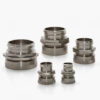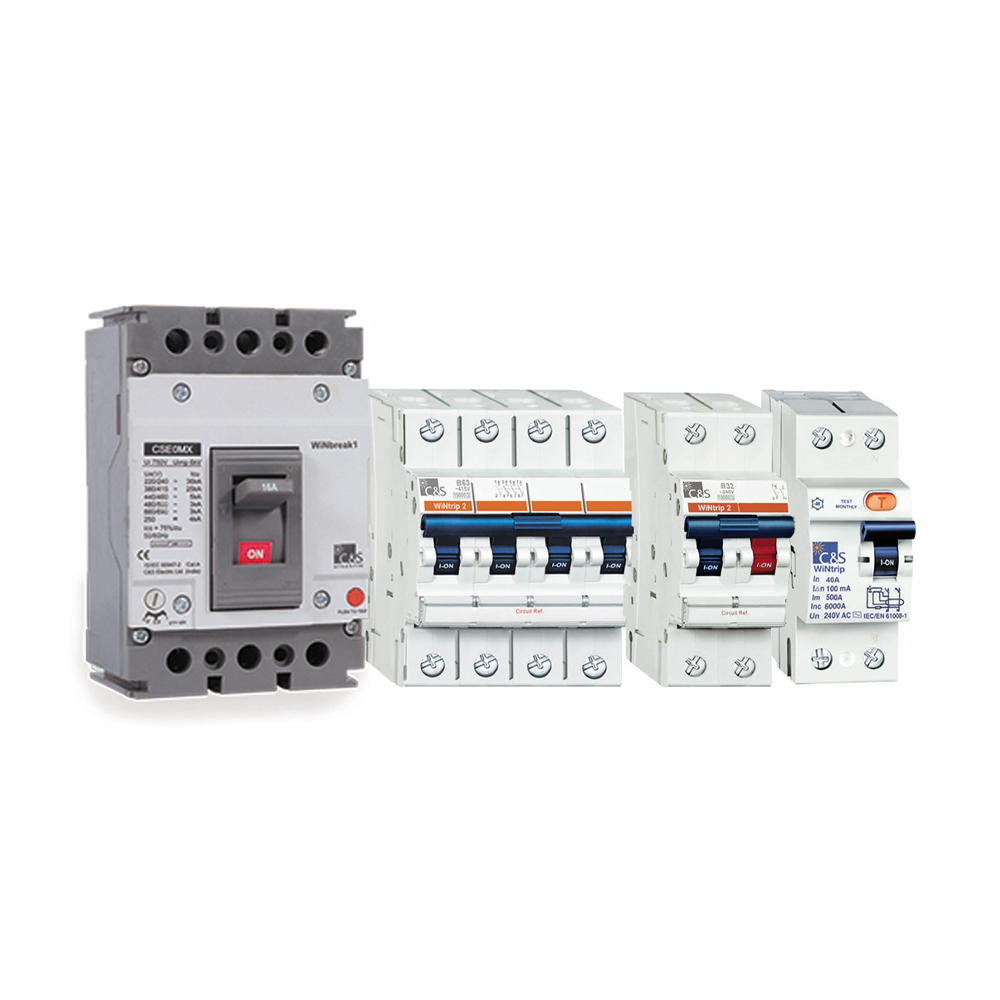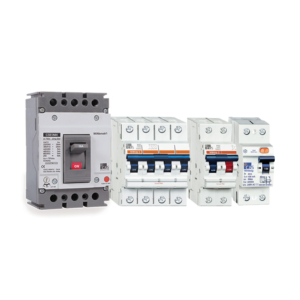🚚 Fast Delivery | ⭐ Best Quality | 📞 24/7 Support
+971 2 552 3918
info@coolwaybm.com
- Power Tools & Machinery
- Fire and Safety Equipement
Fire and Safety Equipement
- Adhesives
- Plumbing & Sanitary
- Packing Materials
Packing Materials
- Abrasives
- Carpentry
- Welding Accessories
Welding Accessories
- Fasteners
- Lock & Furniture Accessories
Lock & Furniture Accessories
- A/C Refrigeration
- Electrical
Electrical
د.إ1.00


د.إ1.00
You can add any HTML here
We suggest you to create a Saved Template in Dashboard -> Templates -> Saved Templates and use it by switching content type above to Saved template.
MCB (Miniature Circuit Breaker), RCCB (Residual Current Circuit Breaker), and MCCB (Molded Case Circuit Breaker) are essential components in electrical distribution systems designed to protect circuits and prevent damage or hazards such as overloads, short circuits, and electric shocks.
- MCB (Miniature Circuit Breaker): The MCB is a compact electrical device used to protect circuits from overload and short circuits. Typically rated for low voltage, MCBs are used in residential and small commercial installations. When the current exceeds a safe limit, the MCB automatically trips, breaking the circuit and preventing further damage. They are available in various current ratings and types, such as B, C, and D, each designed for different applications and load types.
- RCCB (Residual Current Circuit Breaker): The RCCB is a safety device that detects leakage currents caused by faults or imbalances in the electrical system. When there is a difference between the live and neutral currents, indicating potential leakage, the RCCB trips to prevent electric shocks and fire hazards. RCCBs are commonly used in areas where electrical equipment may come into contact with water or moisture, such as bathrooms or kitchens.
- MCCB (Molded Case Circuit Breaker): The MCCB is a larger, more robust version of the MCB, typically used in high-power applications such as industrial settings, large commercial installations, and high-voltage systems. MCCBs provide adjustable protection for overload, short circuit, and earth fault conditions, and they can handle higher currents (up to several thousand amperes). They are commonly used in main distribution panels to protect large electrical circuits.
These devices are crucial in preventing electrical accidents and ensuring safe operation of electrical systems. Each device serves a specific purpose, ensuring that the electrical system is adequately protected based on its application and current load.
There is £4.99 charge for delivery under £50 Orders. Additional charges will be imposed by our couriers for delivery to remote area, a surcharge may be levied to cover carriage to these areas.
MCB, RCCB, and MCCB
د.إ1.00
Short Description:
- MCB (Miniature Circuit Breaker) protects electrical circuits from overload or short circuits.
- RCCB (Residual Current Circuit Breaker) detects leakage current to prevent electric shocks.
- MCCB (Molded Case Circuit Breaker) is used for higher current ratings and protection against overloads and short circuits.
MCB (Miniature Circuit Breaker), RCCB (Residual Current Circuit Breaker), and MCCB (Molded Case Circuit Breaker) are essential components in electrical distribution systems designed to protect circuits and prevent damage or hazards such as overloads, short circuits, and electric shocks.
- MCB (Miniature Circuit Breaker): The MCB is a compact electrical device used to protect circuits from overload and short circuits. Typically rated for low voltage, MCBs are used in residential and small commercial installations. When the current exceeds a safe limit, the MCB automatically trips, breaking the circuit and preventing further damage. They are available in various current ratings and types, such as B, C, and D, each designed for different applications and load types.
- RCCB (Residual Current Circuit Breaker): The RCCB is a safety device that detects leakage currents caused by faults or imbalances in the electrical system. When there is a difference between the live and neutral currents, indicating potential leakage, the RCCB trips to prevent electric shocks and fire hazards. RCCBs are commonly used in areas where electrical equipment may come into contact with water or moisture, such as bathrooms or kitchens.
- MCCB (Molded Case Circuit Breaker): The MCCB is a larger, more robust version of the MCB, typically used in high-power applications such as industrial settings, large commercial installations, and high-voltage systems. MCCBs provide adjustable protection for overload, short circuit, and earth fault conditions, and they can handle higher currents (up to several thousand amperes). They are commonly used in main distribution panels to protect large electrical circuits.
These devices are crucial in preventing electrical accidents and ensuring safe operation of electrical systems. Each device serves a specific purpose, ensuring that the electrical system is adequately protected based on its application and current load.
There is £4.99 charge for delivery under £50 Orders. Additional charges will be imposed by our couriers for delivery to remote area, a surcharge may be levied to cover carriage to these areas.
Reviews
There are no reviews yet.
Buy more save more!
Buy from 2 to 4 items and get 10% OFF
on each productBuy from 5 to 8 items and get 15% OFF
on each product- Free shipping on all orders above 50,00
- No hassle returns, 30 days return
- Next day delivery within your country










Reviews
There are no reviews yet.